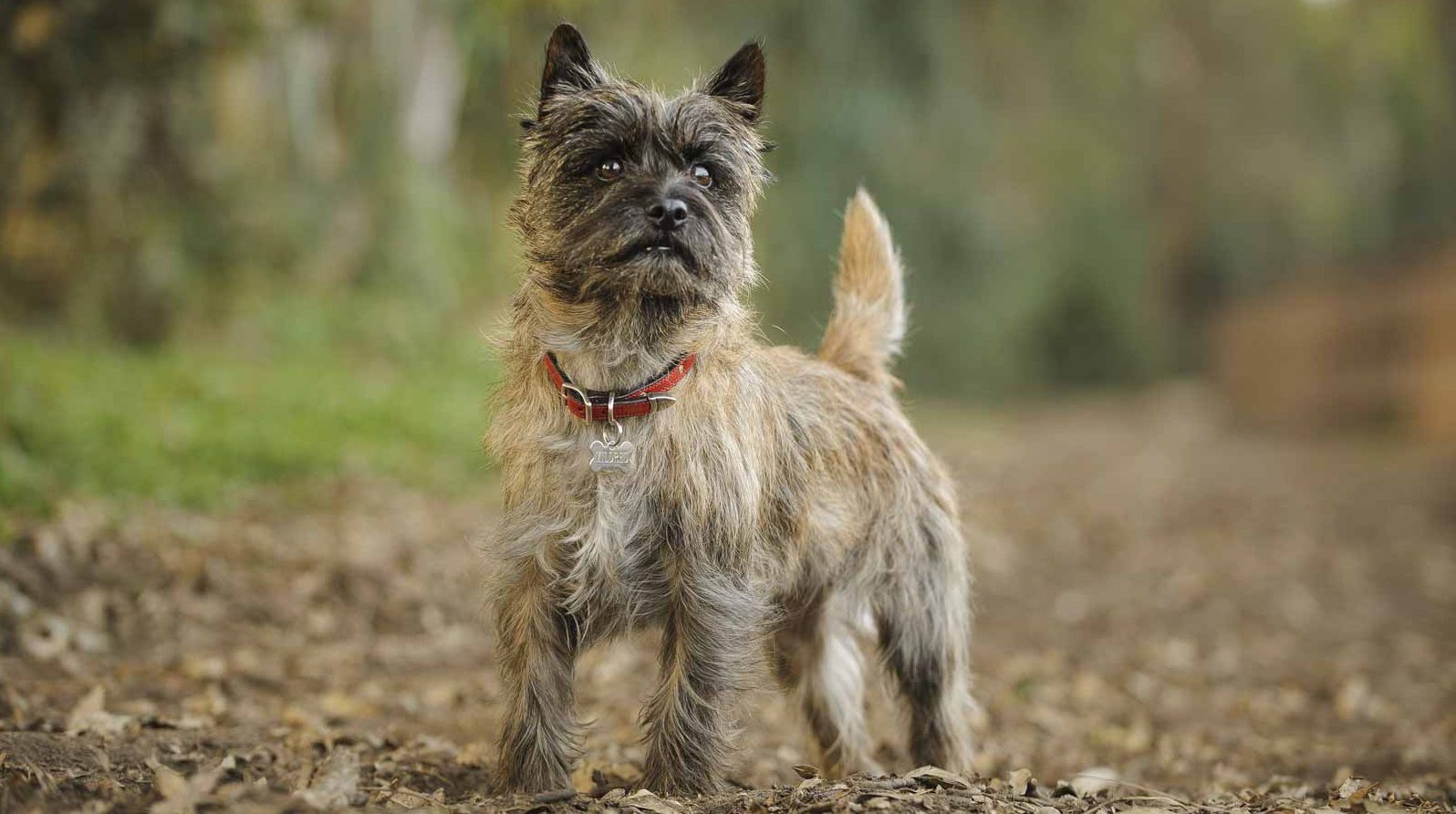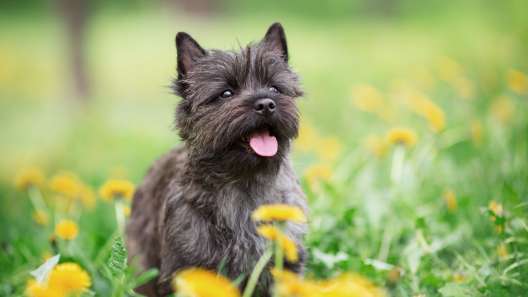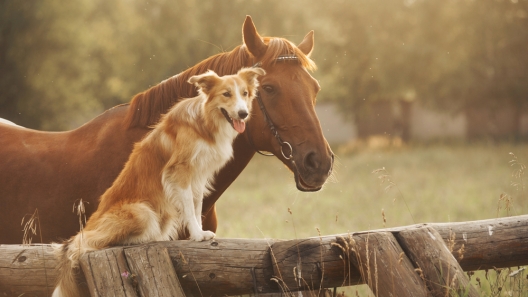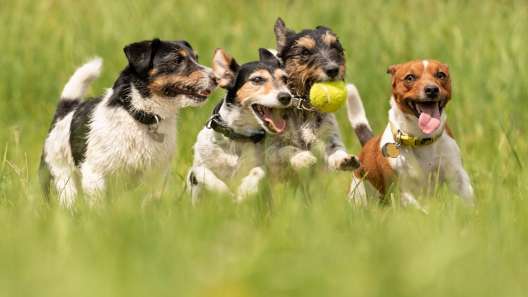-
Activity Level:
moderate
-
Shedding Level:
low
-
Grooming Level:
moderate
-
Trainability:
moderate
-
Good for Novice Owners:
moderate
-
Adaptability:
high
-
Kid/Pet Friendly:
often
-
Prey Drive:
high
-
Watchdog:
very alert
- Average Size: Small
- Average Lifespan: 13-15 years
- Registered?: aca, akc
Cairn Terrier Dog Breed Information
Overview
Temperament
Adaptability
Health
Owner Experience
Grooming
Activity Level
Size
Life Span
Did You Know?
The Cairn Terrier originated in Scotland as a skilled vermin hunter. Although they weren’t named in print until 1887, Cairn Terriers have been known since the 1600s. They were known as “Short-haired Skye Terriers” then and were commonly used throughout the Western Highlands for digging and rooting out small game and for keeping farms free of vermin.
One of the facts about Cairn Terriers is that they were good at pest control. If a farmer had a Cairn Terrier, they didn’t need a barn cat for pest control. Packs of these dogs were also used for hunting other predators, like foxes and otters. The AKC recognized them in 1913 as part of the Terrier Group. Now, this sturdy, tough, and alert earthdog is also a loyal, loving, and playful family companion.
This dog breed is courageous and devoted. They are often called “a big dog in a small dog’s body”. The Cairn Terrier may have a natural instinct to hunt and chase, but they are great with children and more tolerant than most Terriers of other pets. This tends to make them a great family dog and an alert watchdog. Plus, they are bound to provide plenty of laughs and entertainment with their playful antics and cheerful disposition.
Cairn Terriers are tough little dogs, which makes them highly adaptable. They are a good fit for apartment living and also do well in large homes with yards. Due to their double coat, they can handle most climates. As with most dog breeds, they are sensitive to extreme heat or cold.
Because of their instinct to chase, Cairn Terriers should only be walked on a leash. If your yard is securely fenced, your pup can safely run free. Although they are one of the most independent dog breeds, they still crave attention from their family and should not be left alone for too long.
Potential health concerns to be aware of in Cairn Terriers can include hypothyroidism, patellar luxation, and Globoid Cell Leukodystrophy (GCL). GCL is also known as Krabbe’s Disease and is a degenerative disease affecting the brain and spinal cord. Good breeding practices and the health of the parents make a big difference in the health of Cairn Terrier puppies.
Reputable breeders will test and screen their dogs to make sure they are not passing these issues to puppies. So, don’t be afraid to ask the breeder about the health and genetic history of both parents.
You can also ask to see any test results or health clearances. The Cairn Terrier Club of America recommends a DNA test for GCL, a cardiac exam, an eye exam, a patella evaluation, and ultrasounds on the kidney and liver to screen for anomalies.
This dog breed is highly intelligent and can have an independent streak. The Cairn Terrier learns quickly and, although they are eager to please, they might also try to push boundaries and test their limits. Puppy training classes are recommended, especially for first-time owners.
It’s also important to start socialization and training early to help curb the instinct to dig, chase, and bark. These instinctual behaviors won’t go away completely, but they can be minimized and directed to more positive outlets.
The Cairn Terrier may be a tough dog, but they are sensitive souls. They do not respond well to harsh corrections or scolding and this can damage your bond with them. So, it’s important to keep training calm, consistent, and focused on positive rewards and praise.
Cairn Terriers have a double coat that is downy underneath and wiry on top, which gives them a shaggy look. They shed very little. Brushing and combing are recommended on a weekly basis at a minimum. Their coat also requires hand-stripping periodically.
In addition to coat care, you will also need to take care of your Cairn Terrier’s nails, ears, and teeth. Nails should be trimmed once or twice monthly, or more often if needed. Their ears should be checked weekly and carefully cleaned as needed.
Their teeth also need to be brushed regularly. Brushing your dog’s teeth every day, in addition to cleanings at the vet when needed, is ideal to reduce tartar buildup and help prevent tooth decay or other dental problems later in life. Getting your Cairn Terrier puppy used to having their paws, ears, and mouth handled early will make regular grooming much easier throughout their life.
Although they are energetic, Carin Terriers tend to have a moderate activity level. They’ll need a few walks a day plus some more rigorous exercise to remain happy and healthy. They’ll also likely be up for more activity if you are. Often, they’ll just be spending time with you being active.
Trips to the dog park or training in dog sports can be great outlets for their energy. Cairn Terriers tend to excel in agility, obedience, tracking, and even herding. They may even enjoy swimming! Just make sure things stay low-impact until puppies finish growing to avoid damaging developing bones and joints.
A fully-grown Cairn Terrier usually stands 9.5-10 inches tall and weighs 13-14 pounds on average.
Cairn Terriers generally live for 13-15 years on average.
A Cairn Terrier played Toto in “The Wizard of Oz”. Her name was Terry and she gave the Cairn Terrier breed a big boost in 1939 by playing this classic canine character.









